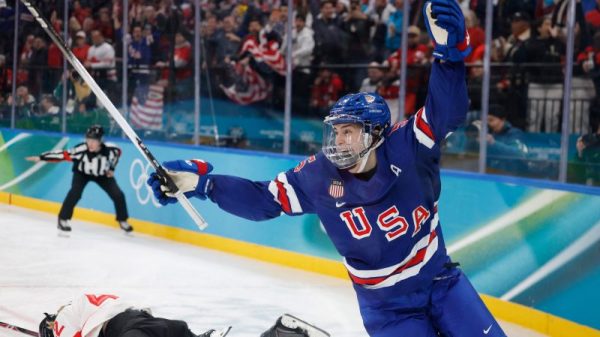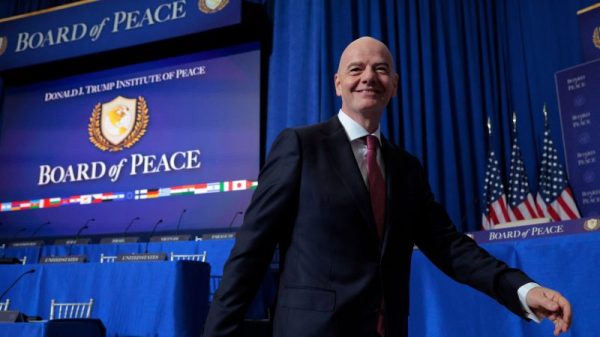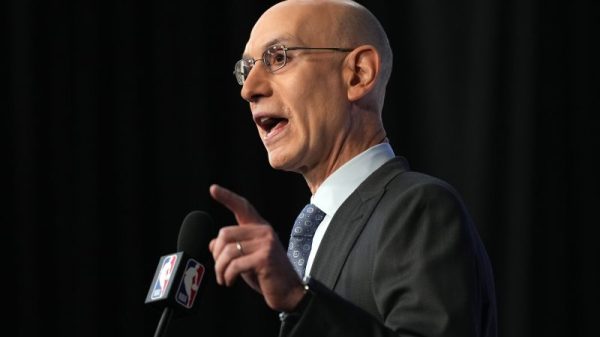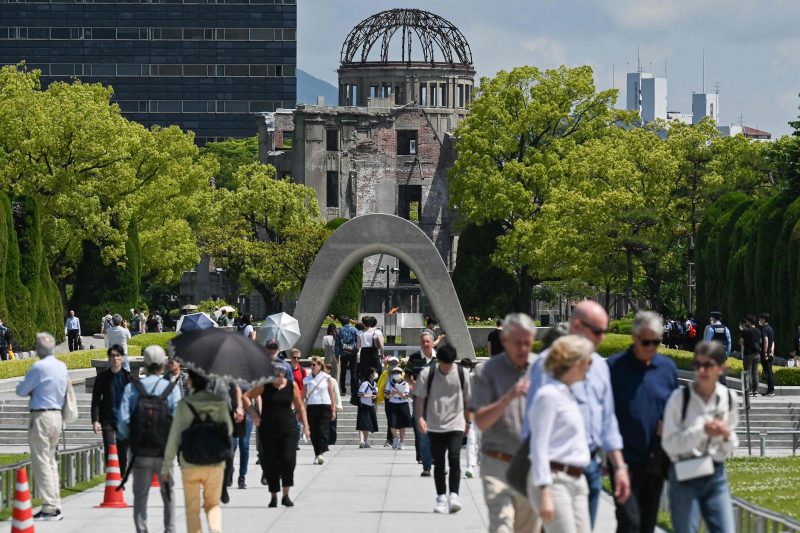HIROSHIMA — At the Hiroshima Peace Memorial, visitors are asked to dwell on the horrors of the atomic bomb that decimated this city in 1945 and to commit to the “total abolition of nuclear weapons.”
That message will be amplified Friday when President Biden and other world leaders gather here for the Group of Seven nations summit, which Japan is hosting with the goal of advancing Prime Minister Fumio Kishida’s oft-stated dream of “a world without nuclear weapons.”
The world, however, is moving rapidly in the opposite direction, putting a spotlight on Biden as he faces pressure to simultaneously stand up to nuclear-armed adversaries and advance the cause of disarmament. For a president who recently warned that humanity faced the highest risk of nuclear “Armageddon” in decades, the summit in Hiroshima presents a stark reminder of the growing threat under his watch as well as a challenge to prove that the United States can still lead the global community away from the brink.
With the world’s largest nuclear powers clashing over the war in Ukraine and the threat of proliferation increasing in China, North Korea, Iran and elsewhere, the leader of the only country to ever use nuclear weapons in warfare will come face-to-face with the memory of what a nuclear conflagration actually looks like.
“It’s not like studying from a book — you feel it,” Hidehiko Yuzaki, the governor of Hiroshima, said in an interview, speaking of world leaders’ visit to this city. “That’s why having the meeting here is very important. Nuclear deterrence is very theoretical. It’s in your head: ‘I think they will behave like this.’ … But here, you feel it.”
White House aides say Biden is likely to spend much of the G-7 focusing on immediate global issues, particularly Russia’s invasion of Ukraine, the threat posed by China and the challenges of global inflation and climate change. But he is also expected to note the symbolism of the summit’s location, meeting with survivors of the atomic bomb and visiting the memorial that commemorates the estimated 140,000 people who died during the bombing and its aftermath.
The Aug. 6, 1945, aerial bombing by a U.S. B-29 plane, and another one three days later over the city of Nagasaki, signaled the end of World War II and the beginning of the era when humanity had the power to wipe itself out. Japan has spent much of the past eight decades pursuing a pacifist foreign policy, opting against developing nuclear weapons of its own and urging other countries to get rid of theirs.
Hosting the G-7 will be the highest-profile platform thus far for Kishida, an elected representative of Hiroshima, to emphasize his message on nuclear disarmament.
Kishida, whose own family has roots in Hiroshima, plans to take Biden and other world leaders on a somber tour aimed at steeling their resolve to prevent such destruction from happening again. At the memorial park and museum, they will see the tattered clothes of schoolchildren who were killed and hear stories of civilians who experienced the painful, long-term effects of radiation.
Kishida has often said that showing leaders the “reality” of what happens when a country uses nuclear weapons is a crucial starting point for a push toward disarmament.
Japanese officials hope the moment will resonate especially with Biden, who, to a degree unusual for politicians, is given to public expressions of empathy in the face of loss.
Like Biden, many of the survivors of the 1945 bombing were young children at the time and are now octogenarians. Known locally as hibakusha, they on occasion recount graphic details of their experiences publicly, to drive home the horrors of nuclear war.
Yasuko Kondo, 82, who was 4 when Hiroshima was targeted, recalls the bombing in vivid colors and scenes — skin melting off people’s bodies like zombies, physical deformities erupting in its aftermath, black rain falling on the city after the attack, carrying radioactive ash and causing radiation burns.
“Hibakushas like us must never be created again, and nuclear weapons really must be eliminated,” she said.
Teruko Yahata, who was 8 during the bombing, said she fears the world is tilting toward another clash that could lead to the use of multiple nuclear bombs.
“It’s like an emergency situation,” she said. “I really hope that dialogue takes place for a resolution, or the situation may escalate and the whole Earth would become like Hiroshima. That is my fear.”
A debate still rages among historians about whether dropping the bombs was a necessary act by the United States to end the war and prevent more deaths, or an unjustified atrocity calling for apology and regret. In Hiroshima, however, many are simply focused on the need to prevent a recurrence.
Hiroshima residents often praise a 2016 trip by President Barack Obama. While Obama, the first U.S. president to visit Hiroshima, did not apologize for America’s use of the atomic bomb, he offered condolences and said that what he saw increased his commitment to advancing the cause of disarmament.
“Among those nations like my own that hold nuclear stockpiles, we must have the courage to escape the logic of fear and pursue a world without them,” he said at the memorial.
Seven years later, with nuclear proliferation advancing in several countries — including some represented at the G-7 summit — Japanese officials say they hope the meeting will include commitments that go beyond platitudes. And they are looking to Biden to lead the way.
Russia’s invasion of Ukraine has raised global fears as President Vladimir Putin and other Russian officials have repeatedly hinted at a willingness to deploy nuclear weapons. Moscow in February suspended its participation in New START, the last major arms control treaty with the United States, and top Russian officials have warned of a growing risk of “nuclear apocalypse.”
The growing threats prompted a stark warning from Biden. “We have not faced the prospect of Armageddon since Kennedy and the Cuban missile crisis,” he said at a political fundraiser in October, adding that Putin “is not joking when he talks about the potential use of tactical nuclear weapons.”
North Korea’s nuclear program, meanwhile, has advanced rapidly, and Pyongyang has conducted dozens of missile tests that has rattled its neighbors. Last month, North Korea claimed it had successfully tested a new solid-fuel intercontinental ballistic missile, which is easier to operate than previous versions and could give potential targets less time to respond.
In neighboring South Korea, polls have consistently found that most people want their government to acquire its own nuclear weapons, and Biden pledged last month to deploy U.S. nukes if necessary to defend Seoul.
And since the United States pulled out of a nuclear deal with Iran in 2018, Tehran has intensified its enrichment of uranium and reduced its “breakout time,” the length of time it would take to produce enough fissile material for a nuclear weapon.
Hiroshima’s leaders hope Biden can find a way to start reversing that trend during the three-day summit. In addition to showing that he “understands the inhumanity of nuclear weapons,” Biden should present “some concrete strategies or measures,” Hiroshima Mayor Kazumi Matsui said.
“If President Biden makes the first step in that direction from here, then the world will change,” Matsui said in an interview.
For Japan, which has been buffeted by many of these developments and is the only country ever targeted by a nuclear weapon, the issue is particularly wrenching.
In his 2020 book, “Toward a World Free of Nuclear Weapons,” Kishida describes listening to his grandmother’s account of the devastation of the bombing and recounts how the stories he heard in childhood became a driving force in his career.
Since becoming prime minister in 2021, the security environment surrounding Japan has grown only more complicated, since Russia, China and North Korea are all its neighbors. That has prompted the country to adopt a major ramp-up of its defense budget so it can defend itself in the case of missile attacks.
But the threats have also intensified Kishida’s push for nuclear disarmament. Last year, he became the first Japanese leader to address the United Nations conference on the Non-Proliferation Treaty, the landmark 1970 agreement that governs the world’s nuclear reduction efforts, calling for greater transparency from nuclear states and a decrease in the global stockpile.
“I cannot but admit that the path to a world without nuclear weapons has become even harder,” Kishida said during his August 2022 speech. “Nevertheless, giving up is not an option. As a prime minister from Hiroshima, I believe that we must take every realistic measure toward a world without nuclear weapons, step by step, however difficult the path may be.”
Noriyuki Shikata, Japan’s cabinet secretary for public affairs, added in a statement that “it is true that the current international security environment is becoming increasingly severe.” But he said Kishida remains determined to “create a momentum to bring the goal of a ‘world without nuclear weapons’ closer to reality.”
For his part, Biden has not made disarmament central to his foreign policy. His administration has continued to update the U.S. stockpile of nuclear warheads, arguing that doing so is necessary to deter adversaries from deploying their own weapons.
Biden has publicly threatened an overwhelming response if Russia or North Korea uses nuclear weapons. His administration’s 2022 Nuclear Posture Review declined to embrace a “no-first-use” policy, which would essentially declare that the United States would only launch a nuclear strike in retaliation for one by another nation. The risk of committing to such a policy was too high, the review found.
But for Biden, who was 2 years old when President Harry S. Truman approved the dropping of the bombs, Friday’s visit could crystallize what nuclear warfare would look like if carried out in practice, said Akiko Fukushima, a senior fellow at the Tokyo Foundation for Policy Research.
“I hope President Biden will understand Japan’s position on nuclear weapons and go along with the effort for ultimate nuclear disarmament,” said Fukushima, who lost several relatives in the Hiroshima bombing. “But it is a very tough act.”
Julia Mio Inuma in Hiroshima contributed to this report.



























